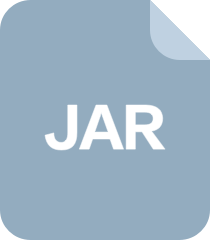《深入解析DataDroid:Android应用开发中的数据处理利器》 在Android开发中,数据管理是不可或缺的一部分,而DataDroid作为一个开源库,为开发者提供了强大的数据操作支持。本篇文章将深入探讨DataDroid的核心特性、使用方法以及其在实际项目中的应用。 一、DataDroid简介 DataDroid是由社区开发的一款面向Android的ORM(对象关系映射)框架,它简化了数据库操作,使开发者可以更加专注于业务逻辑,而非繁琐的数据存储和检索。DataDroid的核心理念是将Java对象与SQLite数据库表进行映射,通过简单的API来执行CRUD(创建、读取、更新、删除)操作,极大地提高了开发效率。 二、主要特性 1. **对象映射**:DataDroid允许开发者定义实体类,并通过注解将这些类与数据库表关联,使得数据操作如同操作对象一样简单。 2. **事务管理**:提供事务支持,确保数据的一致性和完整性。 3. **查询构建器**:提供灵活的查询构造方式,支持复杂的SQL查询。 4. **异步操作**:支持异步数据访问,避免阻塞UI线程,提高用户体验。 5. **缓存机制**:内置缓存系统,可优化数据读取速度,降低数据库访问频率。 三、使用步骤 1. **引入依赖**:首先在项目的build.gradle文件中添加DataDroid的依赖库。 2. **实体类定义**:定义数据模型类,使用注解指定数据库表名、字段名等信息。 3. **初始化数据库**:在应用程序启动时,创建并配置DataDroid实例,设置数据库版本等信息。 4. **数据操作**:通过DataDroid提供的API进行增删改查操作,如`save()`,`delete()`,`find()`等。 5. **查询构建**:利用`QueryBuilder`构建复杂查询,获取所需数据。 6. **事务处理**:在需要保证数据一致性的操作中,使用`beginTransaction()`、`commit()`和`rollback()`进行事务管理。 四、实战应用 在毕业设计或实际项目中,DataDroid可以广泛应用于用户数据存储、应用配置管理、缓存策略等多个场景。例如,对于一个社交应用,可以使用DataDroid来存储用户信息、好友列表、消息记录等,同时通过异步操作保证UI流畅,使用查询构建器快速获取特定用户或消息。 五、注意事项 1. **性能优化**:虽然DataDroid提供了便利,但过度依赖可能导致性能下降,适时优化数据库设计和查询策略。 2. **版本管理**:随着应用迭代,需要处理数据库升级,DataDroid提供了`onUpgrade()`方法来处理版本变更。 3. **异常处理**:在使用DataDroid时,应捕获并处理可能出现的数据库相关异常,确保程序稳定性。 总结,DataDroid作为Android开发中的数据处理工具,通过简化数据库操作,提升了开发效率,是开发者学习和实践Android应用源码的好助手。通过深入理解和熟练运用DataDroid,可以更好地应对各种数据管理挑战,提升应用的整体质量。
 应用源码之DataDroid-master.zip (135个子文件)
应用源码之DataDroid-master.zip (135个子文件)  proguard.cfg 1KB
proguard.cfg 1KB proguard.cfg 1KB
proguard.cfg 1KB .gitignore 84B
.gitignore 84B index.html 62B
index.html 62B index.html 26B
index.html 26B android-support-v4.jar 265KB
android-support-v4.jar 265KB acra-4.4.0.jar 97KB
acra-4.4.0.jar 97KB Base64.java 29KB
Base64.java 29KB Request.java 20KB
Request.java 20KB CrudSyncPhoneListActivity.java 20KB
CrudSyncPhoneListActivity.java 20KB NetworkConnectionImpl.java 14KB
NetworkConnectionImpl.java 14KB RequestManager.java 13KB
RequestManager.java 13KB PoCProvider.java 11KB
PoCProvider.java 11KB DoubleListActivity.java 11KB
DoubleListActivity.java 11KB RssFactory.java 11KB
RssFactory.java 11KB LruCache.java 10KB
LruCache.java 10KB PoCRequestFactory.java 9KB
PoCRequestFactory.java 9KB PersonListActivity.java 9KB
PersonListActivity.java 9KB CrudSyncPhoneAddEditActivity.java 9KB
CrudSyncPhoneAddEditActivity.java 9KB CrudSyncPhoneViewActivity.java 8KB
CrudSyncPhoneViewActivity.java 8KB CustomRequestExceptionActivity.java 8KB
CustomRequestExceptionActivity.java 8KB NetworkConnection.java 8KB
NetworkConnection.java 8KB RssFeedListActivity.java 8KB
RssFeedListActivity.java 8KB RequestService.java 8KB
RequestService.java 8KB CityListActivity.java 7KB
CityListActivity.java 7KB RefreshActivity.java 7KB
RefreshActivity.java 7KB MultiThreadedIntentService.java 7KB
MultiThreadedIntentService.java 7KB ProviderCriteria.java 7KB
ProviderCriteria.java 7KB QuestionDialogFragment.java 6KB
QuestionDialogFragment.java 6KB PoCContent.java 6KB
PoCContent.java 6KB HomeActivity.java 5KB
HomeActivity.java 5KB AuthenticationActivity.java 5KB
AuthenticationActivity.java 5KB ErrorDialogFragment.java 4KB
ErrorDialogFragment.java 4KB RssFeed.java 4KB
RssFeed.java 4KB RequestTypesActivity.java 4KB
RequestTypesActivity.java 4KB PersonListXmlFactory.java 4KB
PersonListXmlFactory.java 4KB ProgressDialogFragment.java 4KB
ProgressDialogFragment.java 4KB ConnectionErrorDialogFragment.java 4KB
ConnectionErrorDialogFragment.java 4KB PoCRequestService.java 4KB
PoCRequestService.java 4KB HttpUrlConnectionHelper.java 3KB
HttpUrlConnectionHelper.java 3KB PersonListOperation.java 3KB
PersonListOperation.java 3KB JSONTag.java 3KB
JSONTag.java 3KB SampleDescriptionDialogFragment.java 3KB
SampleDescriptionDialogFragment.java 3KB RssItem.java 3KB
RssItem.java 3KB ConnectionException.java 3KB
ConnectionException.java 3KB WSConfig.java 3KB
WSConfig.java 3KB CrudSyncPhoneAddEditOperation.java 3KB
CrudSyncPhoneAddEditOperation.java 3KB UserAgentUtils.java 3KB
UserAgentUtils.java 3KB DataDroidLog.java 2KB
DataDroidLog.java 2KB RequestTypesOperation.java 2KB
RequestTypesOperation.java 2KB PersonListJsonFactory.java 2KB
PersonListJsonFactory.java 2KB PhoneListFactory.java 2KB
PhoneListFactory.java 2KB CityListJsonFactory.java 2KB
CityListJsonFactory.java 2KB CrudSyncPhoneDeleteOperation.java 2KB
CrudSyncPhoneDeleteOperation.java 2KB CustomRequestExceptionOperation.java 2KB
CustomRequestExceptionOperation.java 2KB CrudSyncPhoneListOperation.java 2KB
CrudSyncPhoneListOperation.java 2KB AuthenticationOperation.java 2KB
AuthenticationOperation.java 2KB CustomRequestException.java 2KB
CustomRequestException.java 2KB PhoneAddEditFactory.java 2KB
PhoneAddEditFactory.java 2KB CityListOperation.java 2KB
CityListOperation.java 2KB DataException.java 2KB
DataException.java 2KB PhoneDeleteFactory.java 2KB
PhoneDeleteFactory.java 2KB RssFeedOperation.java 2KB
RssFeedOperation.java 2KB Phone.java 2KB
Phone.java 2KB DataDroidActivity.java 1KB
DataDroidActivity.java 1KB SkeletonRequestManager.java 1KB
SkeletonRequestManager.java 1KB CityList2Operation.java 1KB
CityList2Operation.java 1KB City.java 1KB
City.java 1KB PoCRequestManager.java 1KB
PoCRequestManager.java 1KB SkeletonService.java 1KB
SkeletonService.java 1KB Person.java 1KB
Person.java 1KB ObjectUtils.java 1KB
ObjectUtils.java 1KB UserManager.java 1KB
UserManager.java 1KB ArrayUtils.java 950B
ArrayUtils.java 950B XMLTag.java 950B
XMLTag.java 950B DataDroidApplication.java 696B
DataDroidApplication.java 696B SharedPrefsConfig.java 608B
SharedPrefsConfig.java 608B MyCustomRequestException.java 551B
MyCustomRequestException.java 551B ColumnMetadata.java 179B
ColumnMetadata.java 179B README.markdown 2KB
README.markdown 2KB .nofile 0B
.nofile 0B personListXml.php 4KB
personListXml.php 4KB personListJson.php 4KB
personListJson.php 4KB addedit.php 3KB
addedit.php 3KB cityListJson.php 3KB
cityListJson.php 3KB list.php 2KB
list.php 2KB cityList2Json.php 2KB
cityList2Json.php 2KB delete.php 2KB
delete.php 2KB error.php 487B
error.php 487B utils.php 180B
utils.php 180B delete.php 154B
delete.php 154B post.php 152B
post.php 152B put.php 151B
put.php 151B get.php 151B
get.php 151B config.php 106B
config.php 106B authentication.php 58B
authentication.php 58B icon.png 5KB
icon.png 5KB ic_menu_refresh.png 4KB
ic_menu_refresh.png 4KB ic_menu_refresh.png 3KB
ic_menu_refresh.png 3KB icon.png 2KB
icon.png 2KB- 1
- 2

- 粉丝: 1509
- 资源: 2850
 我的内容管理
展开
我的内容管理
展开
 我的资源
快来上传第一个资源
我的资源
快来上传第一个资源
 我的收益 登录查看自己的收益
我的收益 登录查看自己的收益 我的积分
登录查看自己的积分
我的积分
登录查看自己的积分
 我的C币
登录后查看C币余额
我的C币
登录后查看C币余额
 我的收藏
我的收藏  我的下载
我的下载  下载帮助
下载帮助

 前往需求广场,查看用户热搜
前往需求广场,查看用户热搜最新资源
- Vue vs Angular:2024 年选择哪个框架
- 宽带账户密码生成器(获取上网帐号密码并自动保存到D盘)
- 防毒面具检测54-YOLO(v5至v9)、COCO、Darknet、VOC数据集合集.rar
- 算法(第4版).pdf
- 360占用解除器.rar
- 面试题记录1111111111111111111111111111111111111111111
- 大规模语言模型的查询语言:编程即提示
- 深度学习课设-基于resnet网络实现鼠标手写数字识别源码+数据集+模型+运行说明(带GUI界面,直接界面上手写).zip
- 蓝桥杯算法训练平台.zip
- 防护服检测40-YOLO(v5至v9)、COCO、CreateML、Darknet、Paligemma、TFRecord、VOC数据集合集.rar


 信息提交成功
信息提交成功